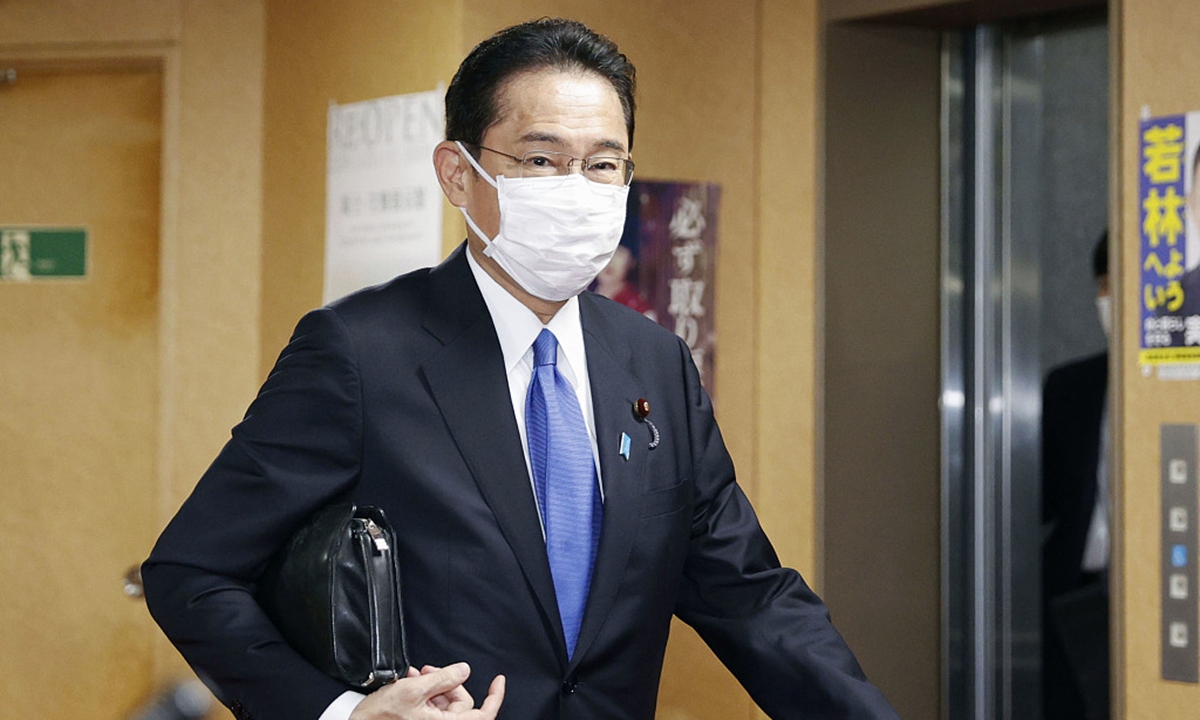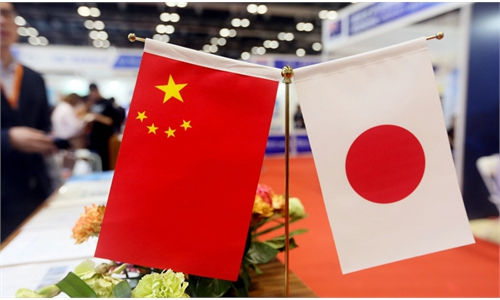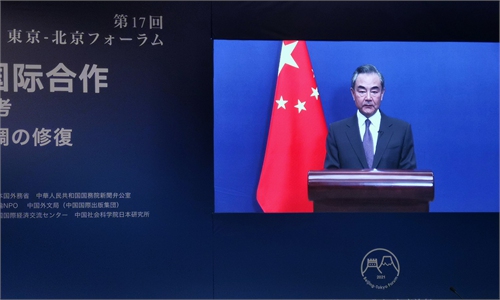Experts warn of potential Japanese military expansion as 77% of election winners back constitutional amendment

Fumio Kishida Photo: VCG
As Japanese Prime Minister Fumio Kishida left Japan on Tuesday on his first overseas trip since he took office to attend the 26th United Nations Conference of Parties on Climate Change (COP26), just after his ruling party won Sunday's general election, a survey by Japanese media showed that 77 percent of the winners in the general election are in favor of revising the country's constitution.
This sounded the alarm in the Asia-Pacific region as Chinese experts warned Tokyo may have the intention of revising Article 9 of the constitution and expand its military. The experts noted that the China-Japan relations are not likely to return to the "honeymoon period" in a short time given the current grim situation.
77 percent of the candidates who were elected to the House of Representatives in Sunday's general poll are in favor of revising Japan's constitution, well over the two-thirds majority necessary to initiate a constitutional amendment in the chamber, a survey by the Mainichi Shimbun showed.
"Amending the constitution itself is not a problem but what clauses should be amended is the key," Da Zhigang, Director and research fellow of the Institute of Northeast Asian Studies at the Heilongjiang Provincial Academy of Social Sciences, and chief expert at the Northeast Asian Strategic Studies Institute, told the Global Times on Tuesday. Da explained that Japan's legal shortcomings have been exposed in its response to the COVID-19 pandemic. For example, there is no problem in cementing the constitution to protect the people by including the role of the government in the event of a major natural disaster and public health emergency.
However, if Japan intends to revise Article 9 of the constitution and expand its military power, China and other countries concerned must be on guard against it, Da warned. Japan should take into full consideration the feelings of neighboring countries, especially those that have been harmed by it, and make prudent judgments, Da urged.
Article 9 of the Japanese constitution says: "Aspiring sincerely to an international peace based on justice and order, the Japanese people forever renounce war as a sovereign right of the nation and the threat or use of force as means of settling international disputes. […] In order to accomplish the aim of the preceding paragraph, land, sea, and air forces, as well as other war potential, will never be maintained. The right of belligerency of the state will not be recognized."
Kishida's visit is expected to look for an opportunity to hold a US-Japan summit this year, according to Chinese experts. They believe the victory of his ruling Liberal Democratic Party (LDP) in the general election has laid a solid foundation for policy making in both domestic and foreign affairs, calling on the Japanese PM to serve the people at home and contribute to the peace and prosperity in the world.
Kishida said in Monday's press conference that he is eager to meet with the leaders of like-minded countries, including US President Joe Biden, and that his government will explore ways to bolster defenses against threats like North Korean missiles. Kishida called for cooperation with other democracies to counter China's increasing influence in the region.
Liu Qingbin, assistant professor at Yokohama National University, told the Global Times on Monday that the "better than expected" results of the general election made Kishida "stronger and more emboldened," adding that "a small talk with Biden at the COP26 could not satisfy him and he is making every effort to visit the US at the end of this year or early next year, hoping to achieve a US-Japan summit as soon as possible."
Winning the general election shows that Kishida's administration is basically stable in domestic affairs. The next step is to see how he behaves in foreign affairs, Da said.
"Kishida has served as foreign minister for nearly five years under Abe's cabinet. He has front-line work experience in diplomacy in addition to his dovish diplomatic style, so there is no need to worry too much about his performance in diplomacy," Da mentioned.
The victory of the ruling LDP in the general election reflected the desire of the Japanese public for political stability. If Kishida is not too bad during his tenure, his potential long-term governing has been basically formed.
Concerns about the "rightwing" of Japanese politics and Japan's tough stance towards China have been raised. Speaking about the future of China-Japan relations, Da said that Kishida's "tough talk" toward China was not ruled out as an "election strategy," and that gaining benefits in the China-US game is Japan's best choice. However, given the current grim situation between China and Japan, both countries may not return to the "honeymoon period" in a short time, according to Da.
Wang Wenbin, spokesperson of the Chinese Foreign Ministry, said at a press conference on Monday that China hopes Japan can stick to the path of peaceful development and urged Tokyo to abide by the bilateral political consensus and promote steady and healthy China-Japan relations.



